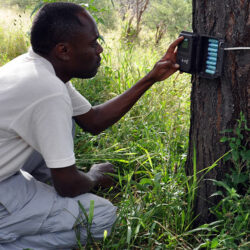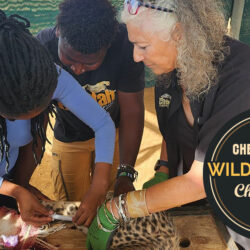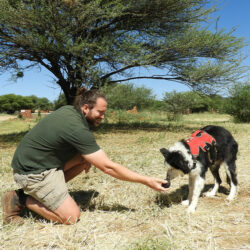Angola Scat Search
-

- by Quentin Jager September 5, 2018
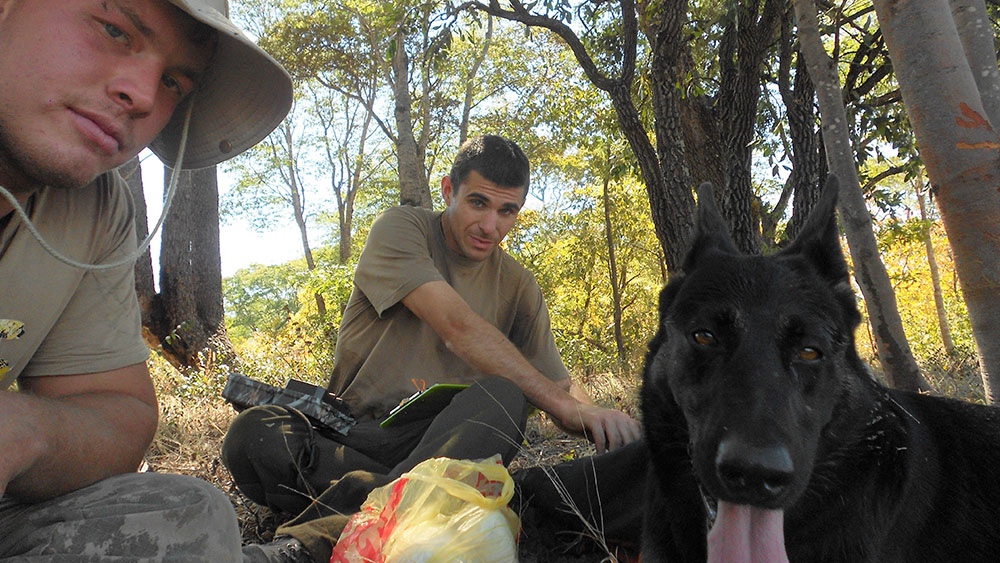
Levi and I joined a 3-year research project involving long-term collaborator, Dr. Ezequiel Fabiano (who obtained his MSc and PhD with Cheetah Conservation Fund (CCF) and is now lecturing at the University of Namibia) and CIBIO (Centro de Investigação em Biodiversidade e Recursos Genéticos). My part of this research, required leading CCF’s scat detection team into Angola from 10 – 30 June 2018 to collect scat samples in local national parks. Our dog team searched more than 7km per day and found a total of 71 scat samples from a range of carnivores, including leopard, caracal, and African wild dog, on which Levi indicated; no cheetah sample was found. The samples will be very valuable to the research of three graduate students. The data collected from both scat samples and camera traps will be combined to analyze the predator and prey population sizes of Angola and how they are integrated.
The project was based in Bicaur National Park, where we searched an area gridded with camera traps. We started working every morning at sunrise until 10h00 and again every afternoon from 16h00 until 18h00 for 6 days a week, having one day to rest every week. Our team consisted of Levi and me, a park ranger who was guiding us, a researcher from CIBIO and a student from Angola. The team collected camera traps in the grid area while I took Levi to look for carnivore scat. The areas we covered were overgrown with thick thorn bush, making it challenging to move through.
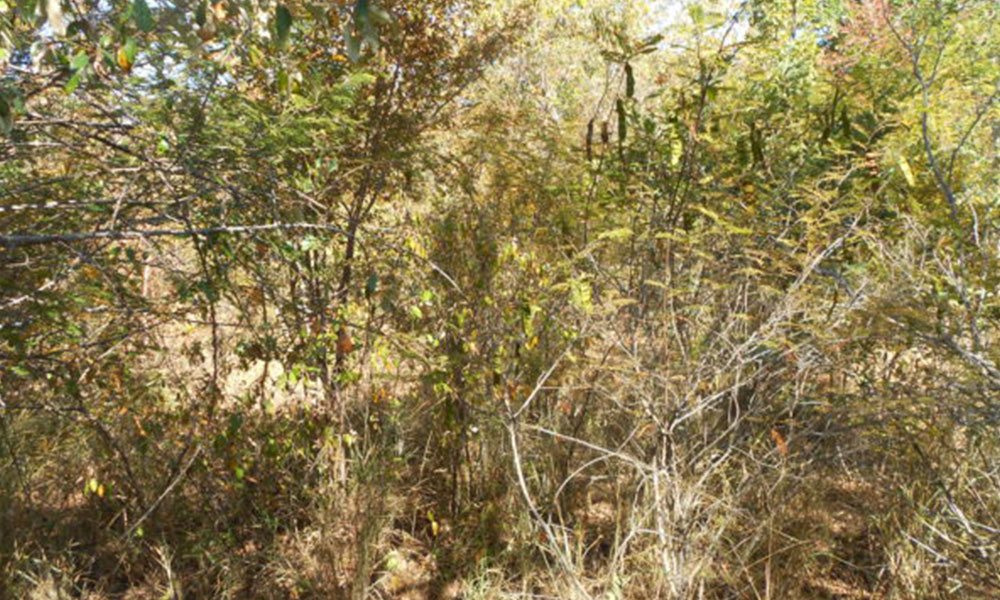
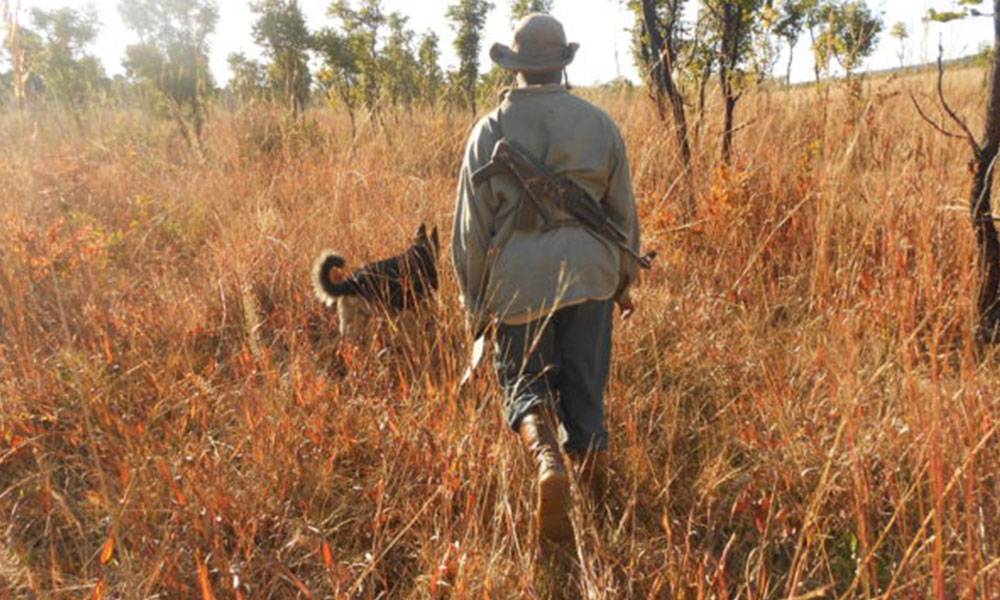
The weather was also discomforting as it was extremely cold in the mornings and would become smoldering hot once the sun got higher. Our challenge we faced due to this weather was to select the right gear when leaving our camp – to wear a thick jacket at 06h00 would become a problem once the temperature started to rise as it added to the weight that needed to be carried and took up valuable space. Generally in field work, the goal is carry few items prioritizing equipment as much as possible. Water management was also a challenge as it becomes very hot and after about 6km moving at around 200m every 30min you become extremely thirsty and water for your dog is top priority. I carried around a 4l bottle of water as more than this would be extra weight and space that we didn’t have.
Despite the challenges, the project was a success and it allowed Levi and I to improve our stamina and working capabilities. Angola is a beautiful country with a beautiful habitat and animals. We are very excited for the remainder of this project and the contribution that we’ll be making to conservation. Giving a working animal a job that helps assist in saving other animals is something remarkable to be part off.
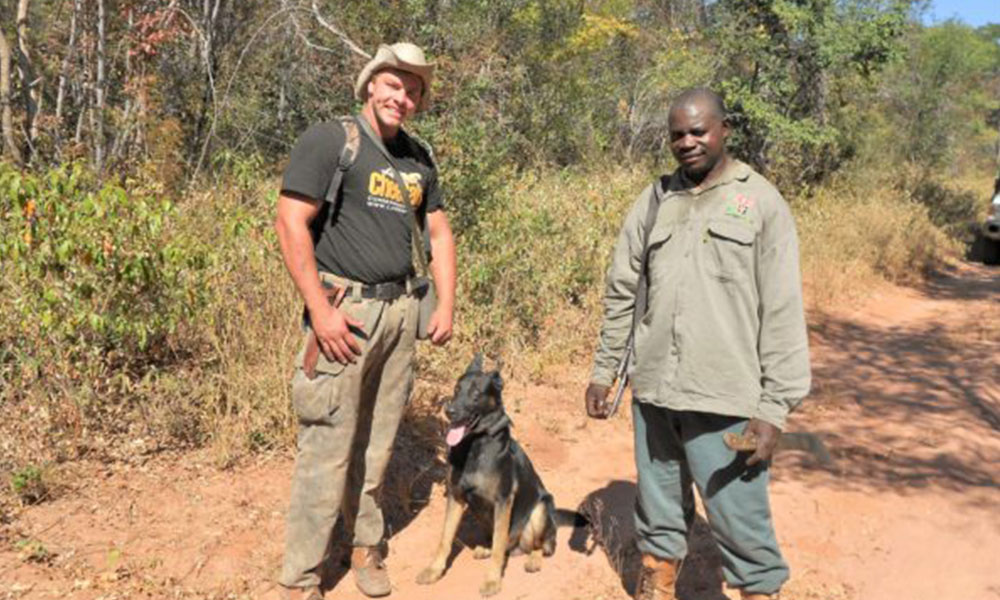
Related Reading
-
May 29, 2024
CCF’s Chief Ecologist and Forest Steward Earns PhD -
July 1, 2023
Chewbaaka’s Wild Cheetah Challenge – 2023 -
March 6, 2023
Finn, CCF’s First Scat Detection Dog, Turns 16!

